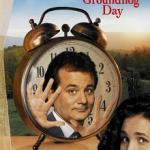Preach at all times, and when necessary, use words. ~ Francis of Assisi
Few figures in Christian life are as popular as St. Francis. The founder of a monastic order with adherents around the world, the patron saint of animals and the environment, the gentle and joyful beggar who, as Dante said, "wed Lady Poverty" to show how a life might be lived in faithful imitation of Christ, Francis is beloved by Protestants and Catholics alike, and plenty of unbelievers have statues of Francis in their garden (or other such things—I open my ales with a St. Francis bottle opener my ex-wife gave me).
A great part of his appeal comes from his extraordinary and well-chronicled life. Francis (c. 1181-1226) was born to a wealthy merchant family, son of a cloth merchant in Assisi. He saw himself as a paragon of chivalry, and was, stories tell us, a popular and handsome young fashionista, before being captured in a battle and held prisoner for some time. He emerged from that experience changed, and over the course of the next few years began to do strange and counter-cultural things. Francis gives us an example of someone who turned his back on everything society said was important because he believed there was something truer and more beautiful to be found.
The stories are pretty dramatic, and we are meant to read them spiritually. In Rome, for example, he exchanged clothes with a beggar and then spent the afternoon outside a church begging. When during prayer he heard a voice (Jesus, presumably) telling him, "Go repair my house, which is falling into ruin," he began rebuilding the ruined Chapel of St. Damian's, one stone at a time. When he sold some of his father's store of rich cloth to raise money for his efforts, and his father, exasperated beyond belief, hauled him into court, Francis is supposed to have given his father the very clothes off his back, and then, standing naked, said he now had only one father, in Heaven.
We know that in 1208, Francis heard the words of the gospel about how Jesus sent out his disciples without money or shoes or staves or extra clothing. As he often seemed to do, he took the instructions literally: hearing this injunction, he gave away everything he possessed and began traveling about preaching penance, brotherly love, and peace.
Creation
The St. Francis we associate with the annual Blessing of the Animals is not a false vision, although he becomes as easy to sentimentalize as Noah's Ark, all fuzzy animals and good feeling. What Francis understood was that everything in Creation was, like himself, created by God, and in his mind, that made every element of Creation family, as it were. The famous "Canticle of Brother Sun and Sister Moon" (which also praises the beauty of Sister Death) is an example of this Creation theology. So is his compassion for a wolf that was terrorizing a village (it was only doing what God had created it to do, after all!). So too is his celebrated sermon to the birds, inviting them (and all Creation) to give thanks to God.
What Francis saw and celebrated was the beauty and complexity of a world God had made. The animals, the plants, the sun and moon were, like humanity, also created by God, and if of a different nature, their beauty too shone to the observant eye. A close attention to Francis could teach us, as the Celtic Christian tradition does, that a faith that doesn't celebrate the physical world dishonors the God who created it.
Francis could also, as his role as patron saint of the ecology suggests, remind us that we are stewards of a world we share with the rest of God's creation: plants, animals, sun, moon, water, Mother Earth. If we truly thought of Creation as populated by our brothers and sisters, would it reshape some of our environmental decisions? Probably. At least, it would encourage us to consider some needs and wants other than our own.
Poverty
When the Rev. Ken Malcolm and I taught St. Francis and his legacy at St. David's, Austin, many of the questions we got were about the poverty at the center of his faith and practice. How did he get by? How did his followers—the brothers, the sisters like the Poor Clares—survive on a day to day basis?
And were we suggesting that they—mothers, fathers, husbands, and wives—try to emulate Francis in this way?
This is one of the most daunting—and necessary—lessons from Francis. As with rebuilding the Church (then the wealthiest and most powerful institution it would ever be), Francis took the commands he heard and lived them out literally, but we are meant to interpret them spiritually. In the Rule he wrote for his followers, Francis wanted to strictly imitate Jesus, and so he bound himself and them to poverty and chastity.
The Church by then was okay with chastity, but poverty was a lot to ask. When Ken reminded us that the ornate and amazing church built over Francis's tomb in Assisi was completely counter to everything by which the saint lived his life (I imagine Francis spinning in his grave so fast he could generate electricity), he was reminding us that Francis's vow of poverty was a challenging counterpoint to the power and pomp of the Church.





